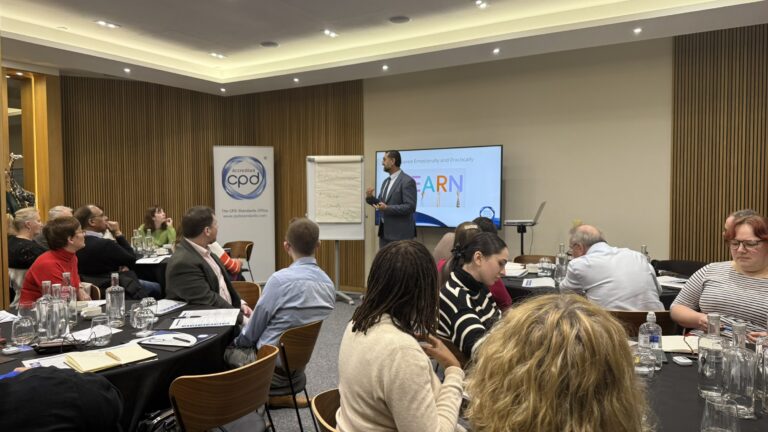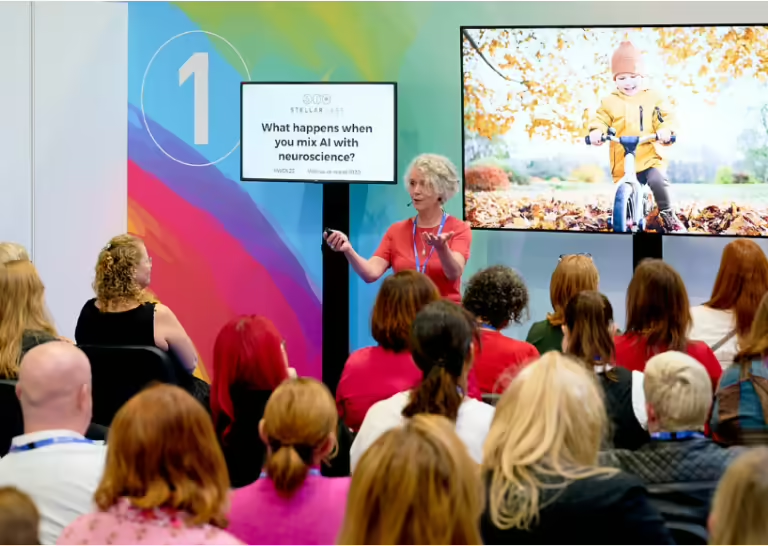Hello, and welcome to this week’s Friday Fresh!
Today, we’ll talk about a powerful concept that can transform your training approach: the idea of training learners to become rather than just to know.
In the realm of professional development, the best trainers are those who empower their learners to embody their goals, not just acquire knowledge.
Let’s explore how you can cultivate this mindset in your training programs.
The Power of Embodiment

When aiming to develop in a specific field, it’s essential to start acting as if you’ve already reached your goal. This approach, known as embodiment, prepares the brain for the moment when the achievement becomes a reality. By behaving as if you are already successful, you train your mind to accept success, reducing the likelihood of self-sabotage when the reward is near.
Why Train to Become?
Psychological Readiness: Acting as if you have already achieved your goals builds psychological readiness. This means learners are mentally prepared to handle success when it arrives, which minimises the chances of being overwhelmed or self-sabotaging.
Enhanced Motivation: When learners start seeing themselves in the roles they aspire to, their motivation levels increase. This sense of identity fuels persistence and dedication, driving them closer to their goals.
Practical Application: Knowledge alone is not enough. The ability to apply knowledge in real-world scenarios is what differentiates a true professional. You ensure learners can confidently apply their knowledge by training them to embody their roles.
How to Implement This in Your Training
- Role-Playing Exercises: Incorporate role-playing scenarios where learners can act out their future roles. This practical application helps them internalise their learning and see themselves as capable professionals.
- Visualisation Techniques: Encourage learners to visualise their success. Guided visualisation exercises can help them picture themselves achieving their goals, reinforcing the embodiment mindset.
- Behavioural Modeling: Provide examples of successful professionals in the field. Analyse and model their behaviours, decision-making processes, and attitudes. Encourage learners to adopt these traits.
- Feedback and Reflection: Offer regular feedback and create opportunities for reflection. Ask learners to consider how their actions align with their professional goals and what adjustments they can make to better embody their desired roles.
- Mindset Coaching: Integrate mindset coaching into your training programs. Teach learners about the power of directed thinking, resilience, and growth mindset to support their journey of becoming.
Final Thoughts
Over the past year, we’ve emphasised various strategies to enhance training effectiveness.
Introducing the concept of embodiment visualises the importance of these elements, offering a holistic approach to professional development. Use this framework as a checklist when designing new training programs, ensuring your learners gain knowledge and become capable professionals.
Train your learners to become, not just to know. By doing so, you prepare them for a future where they understand their field and thrive in it, embodying the success they aspire to achieve.
Sign Up for the Friday Fresh Newsletter!
If you enjoy these articles, sign up for the newsletter and receive it straight into your email every week!







